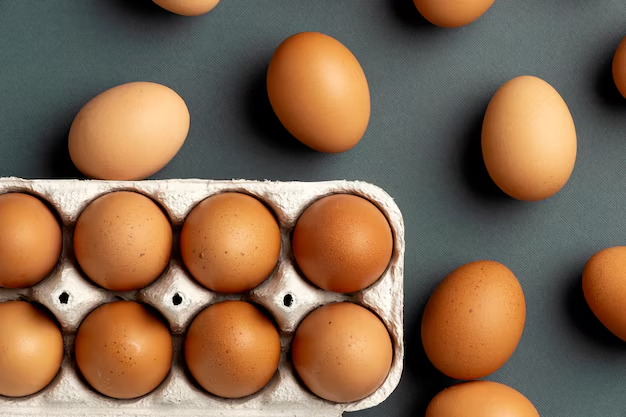How Long Can You Keep Raw Eggs in the Refrigerator? A Complete Guide
Opening the fridge only to find a carton of eggs staring back at you with an uncertain shelf life is a kitchen conundrum many of us can relate to. The question arises – how long are raw eggs safe to use when stored in the refrigerator? Delving into this common query unveils fascinating insights into egg preservation, safety tips, and best storage practices. Let's crack this open and keep your kitchen adventures safe and hassle-free.
🥚 The Shelf Life of Raw Eggs in the Refrigerator
Understanding Egg Freshness
Egg freshness is primarily determined by storage conditions and the egg's age at purchase. Raw eggs stored in their shell can typically be safe for 3-5 weeks in the refrigerator. However, this window largely depends on how well the eggs were refrigerated from the time they were collected to when they landed in your fridge.
Sniffing Out Spoilage
Eggs don't often give visual cues when they spoil. Instead, a telltale smell is the best indicator. If you crack an egg and it releases a distinctly unpleasant odor, it's time to discard it. Unlike many other food items, eggs maintain their visual integrity even when spoiled, making odor a crucial identifier.
Carton Dates versus Expiry Dates
You'll often find packing dates, sell-by dates, or best-by dates on egg cartons. Understanding these can aid in assessing their shelf life:
- Sell-by Date: Indicating when eggs should ideally be sold. Eggs can remain safe a few weeks beyond this date.
- Best-by Date: Suggests when the eggs are at peak freshness and quality.
- Julian Date: A less common but more precise date reflecting when the eggs were packed, usually in a numbered format (001 for January 1st and 365 for December 31st).
Storing Eggs Properly
Proper storage is the heart of extending an egg's life:
- Location: The coldest part of your fridge (not the door) is ideal for eggs.
- Temperature: Consistency is key. Maintain your fridge at temperatures below 40°F (4°C).
- Consistency: Avoid frequent temperature shifts—this speeds up spoilage.
🥘 The Impact of Egg Freshness on Cooking
Baking and Cooking with Eggs
Using fresh eggs in cooking and baking can have a noticeable impact on taste and texture. Fresh eggs provide better emulsification for sauces and volume in baked goods, while also making a more visually appealing outcome with brighter yolks and a tighter overall composition.
Safety in Cooking
In terms of food safety, ensuring your eggs are within their safe usage window is crucial. Pasteurization brings an added layer of security, especially when eggs are used raw or lightly cooked.
🗓 Extending the Shelf Life of Eggs
Freezing Raw Eggs
Fear not if you find yourself with more eggs than you can handle – freezing them is an option. Crack eggs open and whisk them, adding a pinch of salt or sugar to prevent a gel-like consistency upon thawing. Store in airtight containers in your freezer for up to a year, labeling them with the date.
Pickling Eggs
Another less conventional method is pickling. While highly extended storage might affect the texture, pickled eggs can be a tangy addition to meals and can last several months in the refrigerator.
👩🍳 Egg Safety and Health Considerations
Raw Eggs and Salmonella
The risk of salmonella signifies one of the primary concerns for raw eggs. Although much lower than in previous years, practicing vigilant food safety is essential. Choosing pasteurized eggs can reduce risk, especially when making sauces or dressings that involve raw eggs.
Judging Egg Quality and Safety
- Water Test: Place an egg in a glass of water. Fresher eggs will sink and lay flat, while older ones will stand or float.
- Visual Inspection: Look for cracks. Even tiny cracks can allow bacteria to enter.
Practical Tips and Takeaways
Key Strategies for Egg Storage and Usage
Here’s a quick reference list to help you make the most of your raw eggs:
- 📅 Store eggs in their original carton: This keeps them protected and prevents flavors from other foods from being absorbed.
- ⚖ Consume eggs within 3-5 weeks of refrigeration: For best quality and safety.
- ✅ Perform the sniff test: When in doubt, a quick smell check can often confirm spoilage.
- 🔍 Consider pasteurized eggs: If your recipes call for raw eggs, these offer added protection from bacteria.
- 💡 Use the water test to check egg freshness: It's a simple and effective method.
Putting It All Together
Understanding how long raw eggs can safely be kept in the refrigerator marries food safety with savvy kitchen skills. By embracing effective storage habits, considering alternative preservation methods, and maintaining a keen sense of observation, you can rest assured your eggs—and your meals—remain delightful. The journey from carton to cuisine is short, but by giving a few extra moments of attention to your eggs, you ensure joy and satisfaction in every dish you create.

